Natural diuretic herbs: a list with descriptions
Diuretic herbs are an indispensable aid in case of disruptions in the hydrobalance of the body. They can help get rid of swelling, hypertension, and extra kilos caused by water retention in the tissues. Read the article and find out what the natural diuretic herbs are.
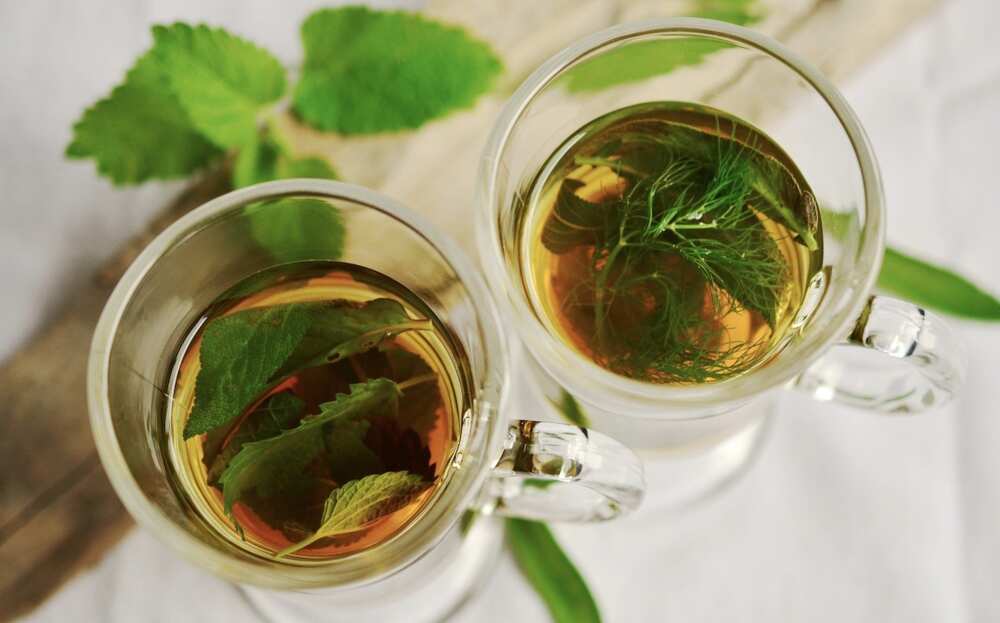
Source: UGC
Diuretic herbs in case of swelling: how to take them
Water stagnation is a problem faced by everyone from time to time. Sedentary work, spinal or leg illnesses, vascular disease, excess weight, pregnancy, heart or kidney failure, and debilitating are some of the swelling causes.
In these cases, the first appointment that doctors will make is diuretics. The safest drugs for the human body are given by a phytopharmacy.
Natural diuretics gently remove excess water, without damaging liver cells. Therefore, diuretic herbs are prescribed to people with chronic diseases, children, pregnant and nursing mothers, as well as the elderly.
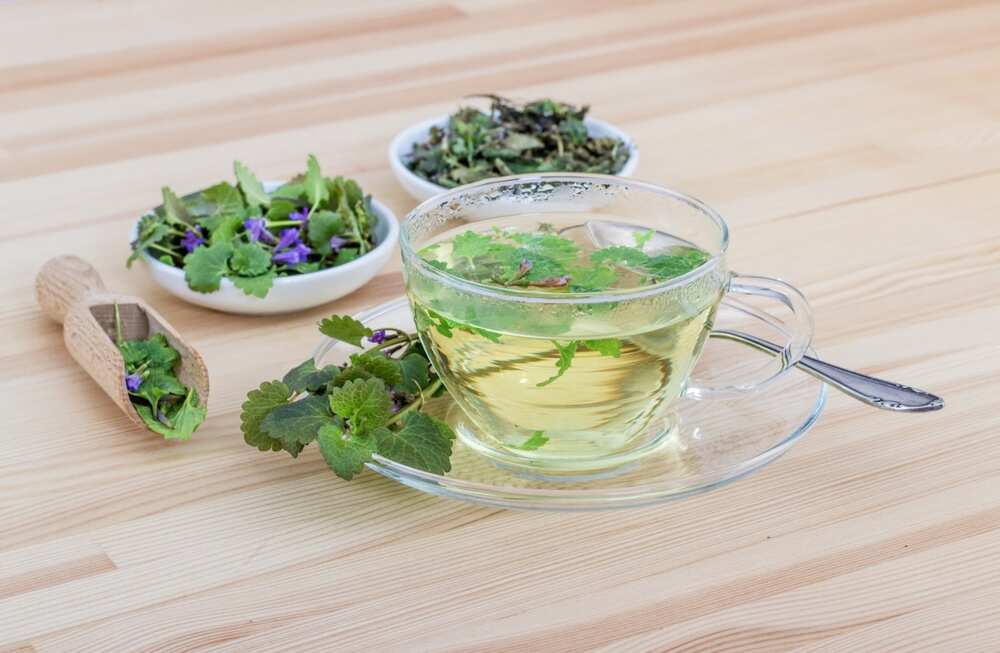
Source: UGC
Diuretic herbs are indispensable for limb swelling. The problem is particularly acute in summer, when people consume large amounts of fluid but exercise little. Water gets stuck in soft tissues and causes anguish with any movement. The swelling of the legs is particularly noticeable. Even with the most comfortable shoes you might feel awful if spent too long in it.
You can overcome this problem by applying a diuretic. Here are formulations that effectively remove swelling:
- Juniper
Juniper is a powerful diuretic. Its berries are used for this purpose. At therapeutic doses, it improves kidney function and disinfects the urinary tract. Its brew is used in case of edemas and swelling of different etiology.
The infusion is prepared this way:
- Take 1 tbsp of juniper and pour it with 250 ml of boiling water.
- Cook in a low heat for 15 minutes.
- Let it simmer for 30 minutes.
- Drain.
- Take a quarter cup before eating.
To strengthen the effectiveness of the juniper berries, add 2 tbsp. of licorice root tincture and fennel to the composition.

Source: UGC
- Blue cornflower
Field cornflower has proven to be effective in fighting edema caused by heart and kidney failure. It is also prescribed for high blood pressure and cystitis.
Cook as follows:
- Pour 1 tsp of the herb with 200 ml of boiling water.
- Cover the bowl with a saucer.
- In 30 minutes, the medicine is ready. Take a quarter glass (50ml) three times a day.
- Dill seeds
This remedy improves the metabolism and circulation of water in tissues, facilitating its excretion from the body.
Cook the following way:
- Pour 1 tbsp of the drug with 200 ml of boiling water.
- Let it brew for 60 minutes.
- Drain and drink three times a day before eating.
- Hawthorn
Hawthorn is an effective venotonic and antiplatelet agent (a drug that prevents blood clots from forming). It dilutes blood, improves its flow and tone the vein walls.
To make this therapeutic tea:
- Pour 2 tbsp of berries with 500 ml of boiling water.
- Drink on an empty stomach (give it a rest for at least an hour before taking) no less than three times a day.
To enhance the effect of hawthorn decoction, combine it with chamomile, calendula and birch leaves.
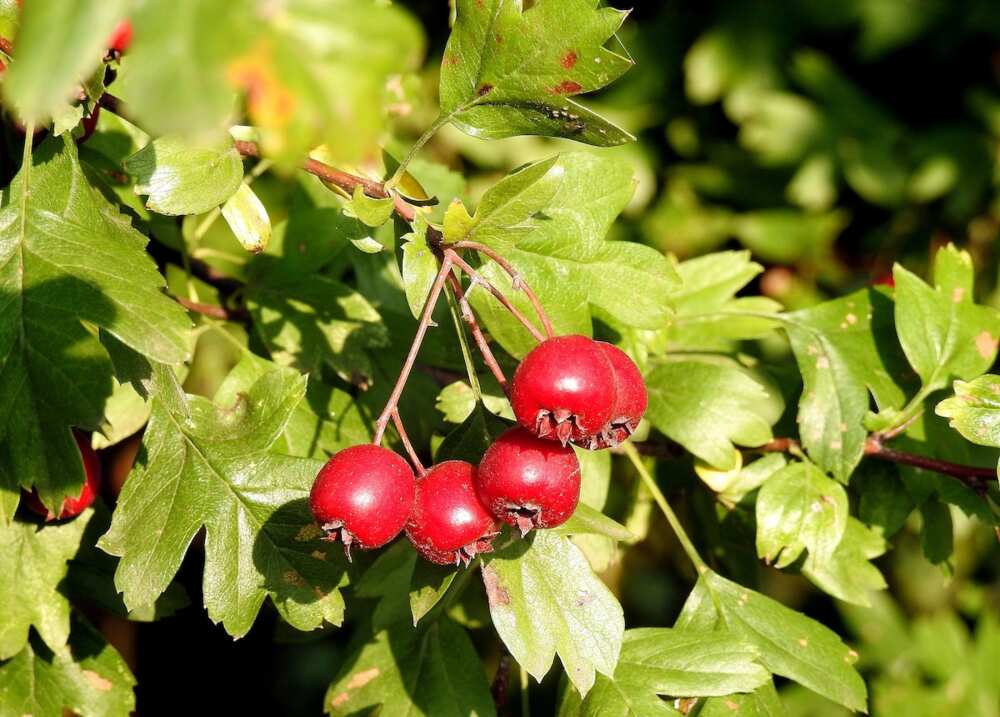
Source: UGC
- Nettles
Nettles are not only a blood-stopping agent, but also a diuretic herb. It has beneficial effects on the kidneys and accelerates the filtration of fluid.
Cook the nettle in this way:
- Pour 2 tsp of leaves with 200 ml of hot water.
- Simmer over a low heat for 2 minutes.
- Leave to stand for at least 15 minutes.
- Strain. The decoction is best taken in the morning as soon as you wake up.
To make diuretic tea:
- Add 1 tsp of horsetail, 1 tsp of birch leaves and 1 tsp of rosehip fruit to the nettles.
- Pour it with half a liter of boiled water.
- Infuse your tea for less than 30 minutes.
To make it better, use a thermos. Drain before consuming. You can add 1 tsp of honey to the mix. Drink 150 ml of this tea on an empty stomach three times a day.
- Parsley
Parsley leaves and seeds are used as diuretics and diaphoretics.
Cook the following way:
- Pour 1 tsp of seeds or 1 tbsp of fried leaves with 200 ml of hot water.
- Cook for 2-3 minutes over a low heat.
- Drain and drink 50 ml before meal.
If you are looking for a good diuretic, this list will help you to choose the natural one. Most of these plants can be found in private plots, in forests and fields. You can prepare them on your own and use for therapeutic and preventive purposes. Before use, it is advisable to consult your doctor.
Diuretics for weight loss: do they really help?
Many dietitians and fitness coaches recommend using diuretic herbs to lose weight. Plant diuretics are good at removing excess fluid from the body. Some herbs have positive effects on digestion, improve metabolism and gut function.
They recommend to take such decoctions in courses of between 10 and 14 days. During this time, the metabolism improves, the hormonal background stabilizes, and excess water is removed from the body. This way, you can lose up to 3 kg of weight.
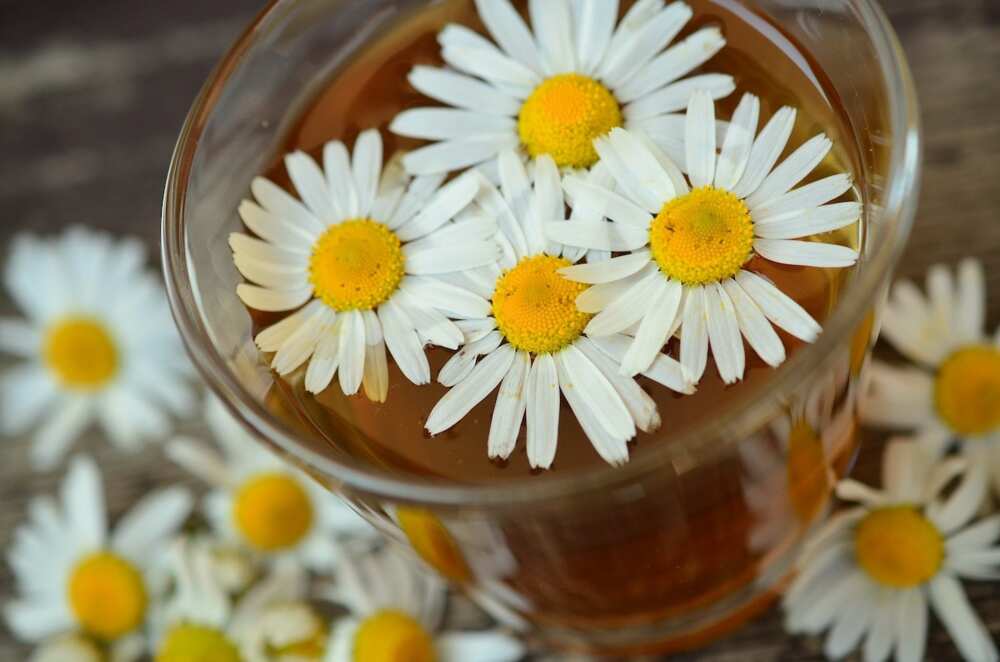
Source: UGC
Diuretic herbs are used as a substitute for coffee and black tea. The following natural diuretics have proven their effectiveness in dietary nutrition:
- Dandelion
Dandelion leaves and roots are used in case of hydrobalance disorders. Infusion improves digestion and intestinal peristalsis, which accelerates the process of losing excess weight.
To make the dandelion tea:
- Use 1 tbsp of dried herb per 200 ml of boiling water.
- Infuse your tea for at least 40 minutes. Drink half a glass 30 minutes before meal.
- Chamomile
Chamomile tea is known for its toning and immunizing features. Dietitians recommend starting the morning with this drink to improve digestion and improve liver function.
Cook it the following way:
- Take 1 tbsp of dried chamomile and pour it with 250 ml of hot water.
- Let it infuse for 20 minutes and drink before or after meal.
During the day, you can drink no more than 3 cups of such tea. The course lasts up to 10 days.
- The root of licorice
Licorice root brews are indispensable for regulating water-salt metabolism in the human body, without which weight loss is almost impossible. Teas that contain licorice root improve metabolism and reduce blood pressure.
It is good to use this herb-based tea for weight loss:
- Mix 1 tbsp of licorice root with 1 tbsp of peppermint, 1 tbsp of melissa and 1 tbsp of centaury.
- Brew the mixture like regular tea (10-15 minutes).
- Drink 1 cup after each meal.
- Milk thistle
This plant is a natural hepatoprotector. The decoctions with milk thistle restore liver function, improve digestion, simplify fat breakdown, speed up metabolism, and remove excess fluid from the body. Vitamin E, which is found in this herb, regulates blood sugar and rejuvenates cells in the body.
Cook the seeds and root of this plant:
- Pour 2 tbsp of the milk thistle with 500 ml of boiling water.
- Infuse it for 12 hours.
- Drain it and drink ¾ a glass before every meal.
- Flax seeds
Flax seeds eliminate excess cholesterol from the body, stimulate the work of the intestines and liver, restore blood circulation, and have a beneficial effect on the kidneys.
Diuretic properties flaxseed reveals in brew. Cook it according to this recipe:
- Take 1 tsp of the flax seeds, pour them with 1 glass of hot water. Bring it to the boil.
- Cool for 15 minutes.
- Strain and drink 20g three times a day before eating.
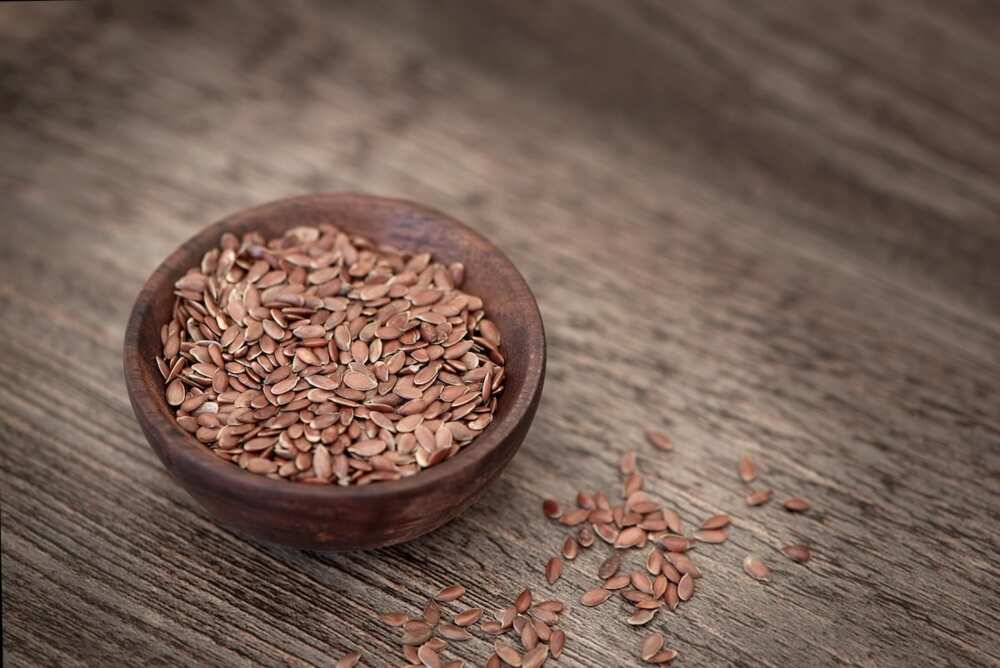
Source: UGC
- Black elderflower
Cooked in a certain way, dried flowers and berries of black elderflower have diuretic and laxative effects. This improves metabolism and excrets toxins faster.
Cook the following way:
- Fill a thermos with 2 tbsp of elderflower flowers.
- Pour 500 ml of boiling water into it.
- Infuse it all night (at least 10 hours), then drain in the morning.
- Drink in small portions throughout the day.
Another way to prepare an elderflower tea is by using its berries:
- Pour 3 tablespoons of berries with a glass of boiling water
- Cover the container with its lid and infuse for 12 hours.
- Drink tea in the morning.
- Blackberries
To remove excess liquid from the body, make tea from the blackberry root. For this purpose:
- Grind 2 tbsp of the product in a coffee grinder
- Pour it with 300 ml of boiling water.
- Place the mixture on a water bath and cook for 15 minutes.
- Infuse it for 30 minutes and then drain. Take 1 tbsp every 2 hours.
The herbs described above have proven effective at losing weight, but they should not be misused. When removing excess fluid, they remove useful trace elements from the body.
Diuretics in pregnancy
Swelling during pregnancy is common. It appears in the second and third trimesters, when the fetus grows actively, strain on the limbs increases, and blood flow to the vessels deteriorates. Doctors recommend using medicinal decoctions to eliminate them.

Source: UGC
However, diuretic herbs in pregnancy are not easy to decide on, because many natural diuretics can negatively affect the health of the fetus and mother-to-be. The list of diuretic herbs provided will help to avoid these problems. They are optimal and even useful for pregnant women:
- Cranberries
Cranberry juice can help pregnant women not only to get rid of swelling but also to increase the immune system, as well as improve the functioning of the heart muscle and tone.
To prepare a healthy drink:
- Puree 400 g of cranberries.
- Drain the juice. Pour it with 1 liter of water.
- Boil the berries.
- In 30 minutes, drain, add the cranberry juice and 4-5 tbsp of sugar or honey.
Drink morse all day, except in the evening (if you do, you will have a sleepless night).
- Chicory
Chicory tones up well and removes excess water from the body, improves kidney function.
When pregnant, make the brew from the shredded chicory root:
- Pour 1 tbsp of chicory with 1 litre of hot water.
- Boil over a low heat for 10 minutes.
- Cool down, drain.
The therapeutic dose is ⅓ of a cup. Take the remedy three times a day.
- Peppermint
Mint is known for its relaxing and sleeping effects. But it is also a powerful diuretic. It can be mixed with ordinary green or black tea. To do this, mix 1 tbsp with 300 ml of hot water. You can take such tea during the day, but not at night.
Mint as a diuretic works perfectly in combination with lingonberries leaves and cornflakes:
- Take 1 tbsp of these herbs, pour them with 0.5 liters of hot water.
- Leave to stand for 6 hours.
- Drink 150-200 ml three times a day.
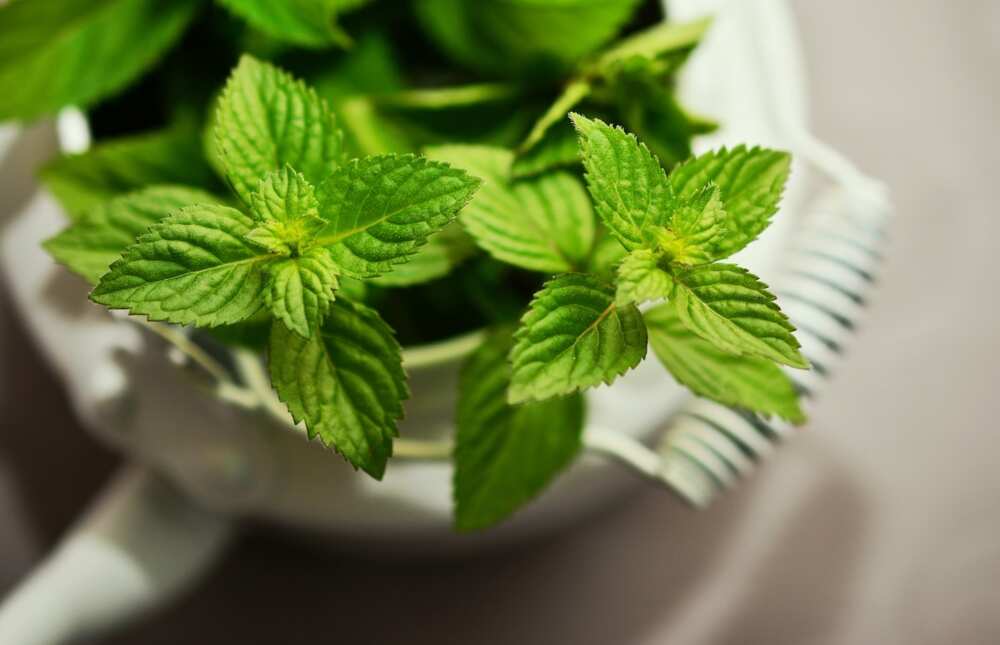
Source: UGC
- Ortho-siphon
Orthosiphon is a strong diuretic. Therefore, use it in critical cases and only on doctor's recommendation. It is used to make kidney tea.
To do this:
- Pour ½ tsp of ortho-siphon with 1 cup of boiling water.
- Infuse it for 20 minutes.
- Strain; refill with water. Drink half an hour before the meal. This tea is also effective for strengthening lactation.
The choice of diuretic herbs for pregnant women is not plentiful. In addition to the described, the leaves and flowers of linden trees, buds and leaves of birch, and chamomile are safe to use. But, it is better to discard horsetail, bearberries, nettles, juniper, leaves and berries of wild strawberry.
Natural diuretics: contraindications and cautions
Use natural diuretics with care. Check first for contraindications and side effects.
Extra carefulness when choosing medicinal plants to eliminate swelling is necessary for the following categories of individuals:
- children under 12 years of age;
- pregnant women;
- breastfeeding mothers;
- allergic people;
- people who have hemorrhagic diseases and tumors;
- people with heart diseases;
- those with high blood pressure.
Diuretics not only remove excess fluid, but also beneficial trace elements and substances. For example, chamomile tea, which is good for weight loss, can wash calcium from the organism, affecting teeth and bones. Particularly dangerous is the long-term use of chamomile as a diuretic for pregnant women and the elderly.

Source: UGC
The same goes for the root of licorice. Such infusions excise potassium, which negatively affects the work of the nervous system and muscles, including the heart. Doctors therefore recommend drinking teas, which contain diuretics, for a maximum of 14 days.
Natural diuretics are available in a wide range of pharmacies, so there will be no problems with the choice. In addition, diuretic teas are characterized by the comfort of taking them. No need to swallow tablets, just brew the herbs and drink it instead of traditional tea. It is good to give it to children or adults with increased vomiting reflex.
Source: Legit.ng










